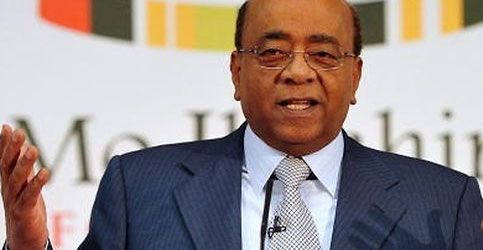The Ibrahim Index of African Governance (IIAG), released on Monday, October 5, found that governance in Africa overall had made little or no progress since 2011. It is a wake-up call, but also a reminder that the blistering pace of change over the past decade and more was always going to be difficult to maintain.
The IIAG consists of 93 indicators to provide a comprehensive assessment of governance performance for each of the 54 African countries. The 93 indicators fall into four categories, namely Safety & Rule of Law, Participation & Human Rights, Sustainable Economic Opportunity, and Human Development. Country scores are out of a total of 100 with the higher the score the better. The scores for all 54 countries are shown in the table below.
The base results of the survey are general news by now with the major findings revealing:
- The top three countries remain Mauritius, Cape Verde and Botswana. The bottom three are the Central African Republic (CAR), South Sudan and Somalia.
- Six countries registered improvements across each of the four categories of the IIAG – Ivory Coast, Morocco, Rwanda, Senegal, Somalia, and Zimbabwe.
- Some 21 countries, including five of the top 10, had deteriorated in overall governance performance since 2011.
- Southern Africa was the best-performing region with an average score of 58.9, followed by West Africa (52.4), North Africa (51.2) and East Africa (44.3).
- Central Africa was the lowest ranked region with an average score of 40.9 – it is the only region that deteriorated since 2011.
The Ibrahim Index is a very useful tool for analysing change over time in governance performance in Africa but, like all analyses, it also requires context to make real sense of what the data is implying. In this case the context is the rapid pace of change in Africa sparked in the mid-1990s that gained further momentum post-millennium.
The slowdown – or “stalling” as the latest Ibrahim Report states – in governance improvements is just as likely to be a consequence of the pace of earlier developments as any real deterioration in the short term. The Index does tend to throw up surprises now and again that perhaps indicate some of the criteria can be misread. For example, Lesotho, with one of the anecdotally worst governance records on the continent, finds itself in the top 10. That is not only an anomaly; it is plain wrong and a lesson about regarding research as infallible.
Reduced to a basic level, the findings of the latest Ibrahim Report are that over a period of 15 years (the life of the Ibrahim Index), the quality of life for Africans has shown massive improvement while over the last four that pace of change has slowed. It is a wake-up call to governments, civil society and the outside community that nothing should be taken for granted and that changing the world we live in is not a short-term task.
But we do not need to be despondent because the pace of change has slowed or even stalled; the key fact here is that the momentum for change is still moving forward. Mo Ibrahim’s comment that accompanied the report stated that Africans overall “are certainly healthier and live in more democratic societies than 15 years ago but the 2015 IIAG shows that recent progress in other key areas on the continent had either stalled or reversed.
It shows that some key countries seem to be faltering. This is a warning sign for all of us. Only shared and sustained improvements across all areas of governance will deliver the future that Africans deserve and demand.” His warnings demand to be heeded or any residue forward momentum could be lost.
According to the Mo Ibrahim Foundation’s website, the organisation “was established with one clear objective – to put governance at the centre of any conversation on African development.” It is the foundation’s belief that “governance and leadership lie at the heart of any tangible and shared improvement in the quality of life of African citizens.”
Gary van Staden (Senior Political Analyst)



